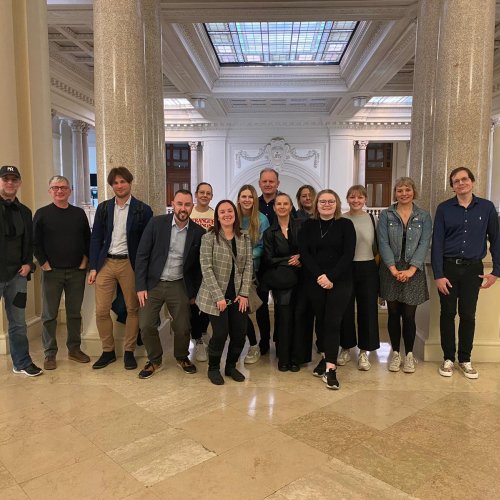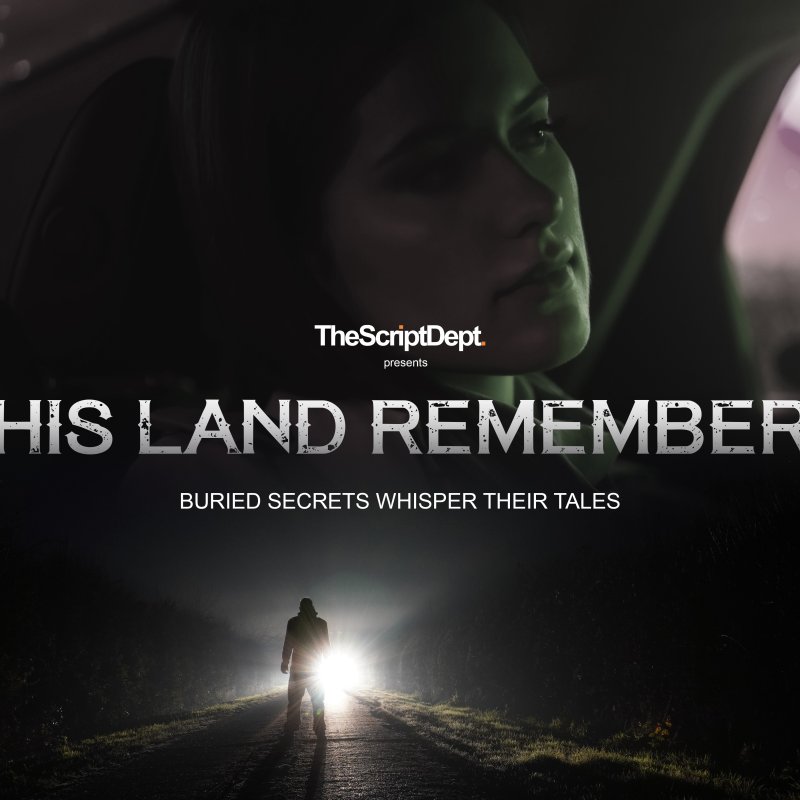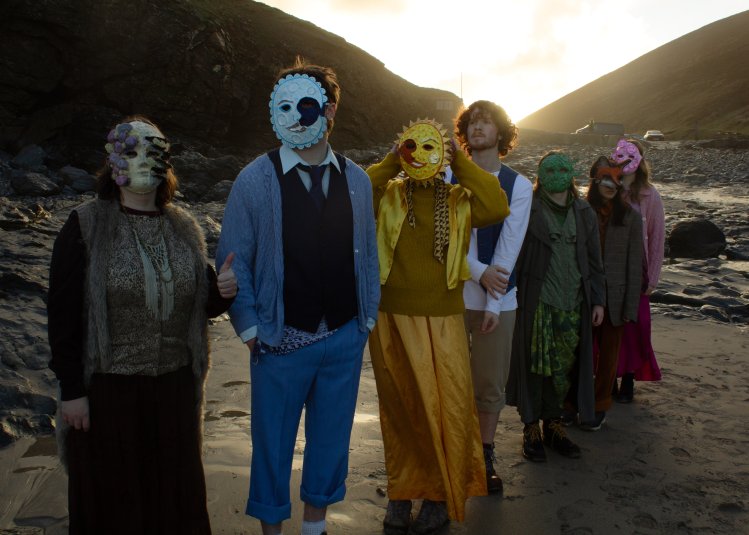Meet Falmouth’s Screenwriting expert Dr John Finnegan
13 March 2024

With over twenty years of experience across the screen industries, award-winning screenwriter and Writing for Script & Screen MA (Online) course leader Dr John Finnegan is a real expert in the field. He has worked in both pre and postproduction as an editor, a visual effects artist and as a freelance screenwriter covering everything from short films to video games.
In 2018 he completed a PhD which investigated the role of the screenwriter in the contemporary media landscape, and as course leader for Falmouth’s online screenwriting master’s, he heads up a global community of writers on a course with an impressive track record of producing industry-ready graduates.
We recently chatted to John about his love of character and storytelling, the importance of collaboration in screenwriting, and the course’s unique approach to supporting graduates out in the industry.
When did you first realise you wanted to work in the screen industries?
When I was a teenager all I wanted to do was become a professional wrestler. But once you take a fall, you very quickly discover the reality of such a profession! So, although I realised pretty swiftly that it wasn't for me, I spent some time thinking, and discovered the thing I really loved about wrestling was the storylines, the characters, the ongoing drama and the comedy of it all – much like movies, which I’d always been interested in.
This fascination with storytelling naturally led me into learning about film and television, and so by my late teens I was fixated on starting a career in the screen industries. I distinctly remember seeing Pulp Fiction for the first time, and thinking it was a perfect ten; poring over every detail to try and understand how it worked as a story. I was probably far too young to have been watching it, but it was gamechanger for me, and made me feel as though becoming a filmmaker was possible.
I have always been interested in video games, too, and have seen storytelling become an increasingly integral part of the game design process; the complexity of character development as seen at the top level of the film industry, for example, has found its way into game design. So, no matter where I looked, I was surrounded by cool characters and stories, and so I was determined to follow that path.
You’re based in Italy. Tell us one thing that inspires you about your surroundings.
I live in a beautiful, small and ancient town called Terracina where the architecture is amazing; there are pillars you can reach out and touch that are older than anything you'll find in Rome. It’s one of those incredible places that just inspires the imagination; walking down every alleyway is like taking a trip back in time, and it perfectly encapsulates the escapist, time-traveling quality that I love so much about storytelling. I am brimming with ideas every time I step outside – you can really imagine Tom Hanks running around these back alleyways in a Da Vinci Code spin-off!
But no matter where you go in any country – whether big cities or small towns – it always has its own unique beauty to it; I’m from Ireland originally, and there’s certainly no shortage of scenic backdrops there, either. Great stories are born in great environments.
What has been the most surprising moment of your time as Course Leader of Falmouth's online master’s in Writing for Script & Screen?
Last year in Rome during one of our in-person course events, we were very fortunate to have one of the commissioners of Netflix there to talk to our students. I remember everybody having their notepads at the ready – myself and the team included – knowing whatever the commissioner said was going to have a huge effect on how we delivered the course in the future.
It was a wonderful talk, but what was exciting was to see just how aligned we were to the latest trends in the industry, to discover that everything Netflix were looking for was already being covered in our teaching and assessments on the course. The industry moves so fast and it's incredibly important to always have a finger on the pulse of the latest trends and industry standards, so that was really validating.
Another interesting thing that’s pleasantly surprised me is how receptive the industry has become to people working from all over the world. There used to be an expectation that you had to be in London, LA or New York to make it as a screenwriter. But as a global online course, over the years we’ve got many examples of graduates getting writing jobs while based outside of these established industry hubs, and so it's really heartening to know that there are opportunities available for our graduates, regardless of location.

John and students at an in-person event
You’ve previously described screenwriting as a “collaborative craft”. Can you tell us about a collaborative project you’ve been involved in that’s been particularly exciting?
I've been very fortunate over the years to collaborate with many production companies and agents, helping to develop projects and pitch them. But I think the most rewarding collaboration I had was last year with one of my oldest friends from film school who is a regular collaborator of mine, Oisin Mac Coille. We came up with an idea for a film, which developed from a short piece to a longer form idea over about eight months, and during that time we were both working entirely remotely: he from Ireland and I from Italy.
It was such a fulfilling, fun and creative experience; firing WhatsApp messages to each other every day and bringing out the best in each other. We didn't always agree with each other's ideas, but we respected one another throughout the whole process because we had established a real sense of trust.
So, I think there’s a lesson there about the importance of finding good writing partners and it's something that I always encourage students on the course to do. When they’re connecting with each other during their time on the course, they’re building that trust, and so when they’re out there in the industry, they have this strong network of people they trust and respect to reach out to, and that’s when they’re producing their best work. While I’ve pitched to some of the biggest movie studios out there over the years, nothing beats working on a project with someone with which you have a true creative connection.

John and Oisin's project, This Land Remembers is now in production at The Script Department
You founded The Script Department to support the next generation of screenwriters. Can you tell us about how it operates, and how it gives aspiring screenwriters a real leg up in the industry?
Module leader Michela Cortese and I founded The Script Department back in 2019, alongside our very first student on the course, Marcus Armstrong, and we liken it to a virtual studio space where graduates may come in after they finish the course to continue polishing their work to prepare them for industry ready. We also run a podcast under the same name where we facilitate script readings of graduate work, which may support them to go out there and find audiences for their stories. Crucially this then allows them to get credits on places like IMDB, which is invaluable when you’re first starting out because it gives them currency when meeting with agents and producers.
We also founded The Script Department to ensure our global community of graduates have equal opportunities to make names for themselves. While, as I mentioned earlier, the industry is more and more receptive to people working from all over the world, there aren’t always the same opportunities to get your stories out there – particularly if it’s a local story. Someone based in the West of Ireland might have a trickier time sourcing funding for a short film than someone based in London, for example, because there is less infrastructure. So, supporting graduates to get credits for their own stories is something that very few screenwriting degrees can offer, and the industry really values what we’re doing.
Screenwriting is a notably competitive career path to follow. What is the best piece of advice you have received from a fellow screenwriter?
I had the pleasure of meeting actor and screenwriter David Hayter, who moved from voice acting in video games to screenwriting and has worked on films like X-Men and Watchmen. We interviewed him for the course, and one particular thing he said has always stayed with me, and that was: ‘there is always another script’. It was such a healthy reminder to keep writing and to keep developing your craft. That's what I love about screenwriting; films can take a long time to get off the ground but as a screenwriter, I can be thinking about my next script. It's also a great philosophy to remember when times are tough. So, David Hayter’s philosophy has always felt like a liberating one to embrace, and it’s something I share with students on the course; there will always be other opportunities coming your way if you keep working hard.




